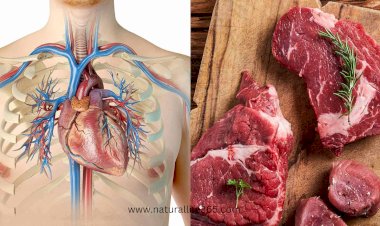How Intermittent Fasting Can Transform Your Health: A Comprehensive Guide
Explore how intermittent fasting can transform your health. This comprehensive guide covers benefits, myths, and tips for effective fasting.

Intermittent fasting has become a cornerstone of my health and wellness routine, and it has brought about a profound transformation in my life. I began my journey with the 12/12 method, where I fasted for 12 hours and ate during a 12-hour window. This initial step allowed me to ease into the practice and understand its effects on my body. As I grew more comfortable with fasting, I transitioned to the 16/8 method, where I fast for 16 hours and eat within an 8-hour window. This adjustment has helped me experience even greater benefits, including improved energy levels, mental clarity, and a more balanced relationship with food.
In this comprehensive guide, I aim to share the transformative potential of intermittent fasting. Whether you're curious about the practice or looking for ways to enhance your current routine, this guide will provide insights, scientific evidence, and practical tips to help you explore how intermittent fasting can be a game-changer for your health.
What is Intermittent Fasting?
Intermittent fasting (IF) is a dietary approach that cycles between periods of eating and fasting. Rather than focusing on what you eat, intermittent fasting emphasizes when you eat. This approach aligns with how our ancestors naturally ate due to the scarcity of food and aligns with the body's natural rhythms.
At its core, intermittent fasting is not a diet but rather a pattern of eating. It doesn't prescribe specific foods to eat or avoid but instead dictates when to eat them. This flexibility makes it appealing to many people, as it can be adapted to fit various dietary preferences and lifestyles.
Types of Intermittent Fasting
There are several popular methods of intermittent fasting, each with its own structure:
- 16/8 Method: This involves fasting for 16 hours each day and eating within an 8-hour window. For example, you might eat from noon to 8 p.m. and fast from 8 p.m. to noon the next day. This method is one of the most popular and sustainable for many people.
- 5:2 Diet: In this approach, you consume a normal diet for five days a week and significantly reduce calorie intake (to about 500-600 calories) on the other two non-consecutive days.
- Eat-Stop-Eat: This involves fasting for a full 24 hours once or twice a week. For example, you might fast from dinner one day to dinner the next.
- Alternate-Day Fasting: This pattern alternates between fasting days, where calorie intake is very limited, and regular eating days.
- The Warrior Diet: This method involves eating small amounts of raw fruits and vegetables during the day and having one large meal at night within a 4-hour eating window.
You can also read Vegetarianism and Weight Loss: Strategies for Success
History and Origins
Fasting is not a new concept; it has been practiced for centuries across various cultures and religions for spiritual, health, and survival purposes. Historically, our ancestors often experienced periods of food scarcity, which naturally led to intermittent fasting. In religious contexts, fasting is seen in practices such as Ramadan in Islam, Lent in Christianity, and various fasting rituals in Hinduism and Buddhism. These traditions have long recognized the benefits of fasting, both physically and spiritually.
Today, intermittent fasting has gained popularity as a health and lifestyle choice, backed by scientific research highlighting its potential benefits. By aligning our eating patterns with our natural biological rhythms, intermittent fasting can promote better health and well-being.
Health Benefits of Intermittent Fasting
Intermittent fasting has gained attention for its potential to improve various aspects of health. While individual experiences may vary, a growing body of research suggests several significant benefits associated with this eating pattern.
Weight Loss and Metabolic Health
One of the most common reasons people try intermittent fasting is for weight loss. By reducing the eating window, many people naturally consume fewer calories, which can lead to weight loss. Fasting also enhances hormone function to facilitate weight loss. It increases norepinephrine levels, boosting metabolism and promoting fat burning. Furthermore, it lowers insulin levels, allowing fat to be more accessible for energy use.
Cellular Repair and Longevity
Intermittent fasting triggers autophagy, a process where cells remove damaged components and recycle them for repair. This cellular "clean-up" helps maintain healthy cell function and may contribute to increased longevity. Studies have shown that autophagy plays a crucial role in preventing diseases such as cancer and Alzheimer's, making it a vital mechanism for overall health.
Blood Sugar and Insulin Sensitivity
Intermittent fasting can help stabilize blood sugar levels and improve insulin sensitivity, reducing the risk of type 2 diabetes. By giving the body regular breaks from insulin production, fasting helps maintain steady blood sugar levels. Research indicates that intermittent fasting can lower fasting blood sugar levels and decrease insulin resistance, making it an effective strategy for managing blood sugar levels.
Heart Health
Heart health can benefit significantly from intermittent fasting. It helps reduce risk factors such as high blood pressure, cholesterol levels, and inflammation. Studies have shown that fasting can lower LDL cholesterol (the "bad" cholesterol) and triglycerides while increasing HDL cholesterol (the "good" cholesterol), contributing to better cardiovascular health.
Brain Health
Intermittent fasting is beneficial for brain function and mental clarity. It increases the production of brain-derived neurotrophic factor (BDNF), a protein that supports neuron growth and protection against neurodegenerative diseases. Fasting also enhances cognitive function and may reduce the risk of conditions like Alzheimer's disease by promoting brain health.
Reduced Inflammation
Chronic inflammation is linked to various health issues, including heart disease, cancer, and arthritis. Intermittent fasting can help reduce inflammation by decreasing oxidative stress and enhancing the body's ability to combat inflammation. By lowering inflammation levels, fasting may help mitigate the risk of chronic diseases and improve overall health.
Scientific Evidence and Research
Intermittent fasting has garnered significant scientific interest, leading to a wealth of studies that explore its effects on health. Here, we’ll delve into some key research findings that support the benefits of intermittent fasting.
Weight Loss and Metabolism
Numerous studies have demonstrated that intermittent fasting can be an effective tool for weight loss and metabolic improvement. A review published in the journal Obesity found that intermittent fasting can lead to weight loss of 3-8% over 3-24 weeks, a rate comparable to traditional calorie-restriction diets. Moreover, it enhances metabolic rate by increasing norepinephrine levels, which can boost daily calorie burn.
Cellular Repair and Longevity
Research has shown that intermittent fasting triggers autophagy, a crucial process for cellular repair and maintenance. A study published in Nature highlighted that fasting initiates autophagy, which helps remove damaged proteins and organelles, potentially contributing to increased lifespan and decreased risk of age-related diseases.
Blood Sugar and Insulin Sensitivity
Several studies have indicated that intermittent fasting can improve blood sugar control and insulin sensitivity. A study in Translational Research found that intermittent fasting reduced fasting insulin levels by 20-31% and fasting blood sugar levels by 3-6% over 8-12 weeks. These changes can significantly reduce the risk of developing type 2 diabetes.
Heart Health
Research supports the heart health benefits of intermittent fasting. A study published in The American Journal of Clinical Nutrition demonstrated that fasting can lead to improvements in heart health markers, such as reductions in LDL cholesterol and triglycerides. Another study in Cell Metabolism found that intermittent fasting can lower blood pressure, further contributing to cardiovascular health.
Brain Health
Intermittent fasting has been shown to have neuroprotective effects. Research published in The Journal of Neuroscience found that intermittent fasting increases the production of brain-derived neurotrophic factor (BDNF), which supports neuronal health and cognitive function. Additionally, studies in animal models have shown that intermittent fasting can enhance memory and learning, as well as reduce the risk of neurodegenerative diseases like Alzheimer’s.
Reduced Inflammation
Inflammation plays a role in many chronic diseases, and intermittent fasting can help reduce it. A study published in Obesity Research found that intermittent fasting reduced markers of inflammation, such as C-reactive protein (CRP), by 40% in individuals following a fasting regimen. This reduction can lower the risk of developing inflammatory-related diseases.
Expert Opinions
Experts in nutrition and health have expressed support for intermittent fasting based on these findings. Dr. Mark Mattson, a neuroscientist at the National Institute on Aging, has conducted extensive research on fasting and its effects on the brain. He suggests that intermittent fasting can enhance brain health and resilience to stress. Similarly, Dr. Jason Fung, a renowned nephrologist, advocates for intermittent fasting as a powerful tool to combat obesity and metabolic disorders.
How to Start Intermittent Fasting
Starting intermittent fasting can be a straightforward process, but it’s important to find a method that suits your lifestyle and goals. Here’s a step-by-step guide to help you get started on your intermittent fasting journey.
Choosing the Right Method
The first step in starting intermittent fasting is choosing a method that aligns with your daily routine and personal preferences. Here are some popular options to consider:
- 16/8 Method: Fast for 16 hours and eat within an 8-hour window. This method is easy to integrate into most lifestyles and is a good starting point for beginners.
- 5:2 Diet: Eat normally for five days a week and consume 500-600 calories on two non-consecutive days. This approach allows for flexibility while providing the benefits of fasting.
- Eat-Stop-Eat: Fast for 24 hours once or twice a week. This method can be challenging but offers a more significant fasting window for those looking for faster results.
- Alternate-Day Fasting: Alternate between fasting days with minimal calorie intake and regular eating days. This approach may be suitable for those who can handle longer fasting periods.
- The Warrior Diet: Eat small amounts of fruits and vegetables during the day and have one large meal at night. This method mimics the eating patterns of ancient warriors and may appeal to those who prefer a more structured routine.
Creating a Fasting Schedule
Once you’ve chosen a method, it’s time to establish a fasting schedule. Here are some tips to help you create a routine that works for you:
- Plan Your Eating Window: Decide on your eating and fasting hours. For example, if you choose the 16/8 method, you might eat from 12 p.m. to 8 p.m. and fast from 8 p.m. to 12 p.m. the next day.
- Start Gradually: If you’re new to fasting, ease into it by gradually increasing your fasting window. Start with a 12/12 schedule and slowly work your way up to longer fasting periods.
- Be Consistent: Stick to your chosen schedule as much as possible to allow your body to adapt and experience the benefits of fasting.
Transitioning Tips
Transitioning to intermittent fasting can be challenging at first, but these tips can help make the process smoother:
- Stay Hydrated: Drink plenty of water during fasting periods to stay hydrated and help curb hunger.
- Keep Busy: Distract yourself during fasting periods with activities like exercise, work, or hobbies to keep your mind off food.
- Listen to Your Body: Pay attention to how your body responds and adjust your fasting schedule if necessary. It’s important to find a balance that works for you.
- Eat Nutrient-Dense Foods: When breaking your fast, focus on consuming nutrient-dense foods that provide essential vitamins and minerals. Opt for whole foods, lean proteins, healthy fats, and plenty of fruits and vegetables.
- Avoid Overeating: While it may be tempting to indulge after a fast, try to avoid overeating. Listen to your hunger cues and eat mindfully to ensure you’re not consuming more calories than needed.
Starting intermittent fasting is a personal journey, and finding the right approach for you is key. With time and patience, intermittent fasting can become a sustainable and rewarding lifestyle change.
Potential Challenges and How to Overcome Them
While intermittent fasting offers numerous health benefits, it can also present some challenges, especially for beginners. Understanding these challenges and knowing how to overcome them can help you succeed in your fasting journey.
Common Side Effects
When starting intermittent fasting, you may encounter some common side effects. Here’s how to address them:
- Hunger Pangs: Feeling hungry is natural, especially when you first start fasting. To manage hunger, stay hydrated by drinking water, herbal teas, or black coffee during fasting periods. Consuming high-fiber, nutrient-dense foods during your eating window can also help keep you fuller for longer.
- Fatigue and Low Energy: You might experience fatigue as your body adjusts to the new eating pattern. Ensure you’re getting enough sleep, and consider reducing the intensity of your workouts during the initial phase. As your body adapts, your energy levels should improve.
- Irritability and Mood Swings: Irritability, sometimes referred to as "hanger," can occur when your blood sugar levels drop. Keep your mind occupied with activities or work to distract yourself from irritability. Consuming balanced meals with healthy fats and proteins can also help stabilize your mood.
- Headaches: Headaches can be caused by dehydration or caffeine withdrawal. Drinking plenty of water and gradually reducing caffeine intake can alleviate this issue.
Tips for Success
Implementing the following strategies can help you overcome challenges and maintain consistency with intermittent fasting:
- Gradual Transition: If you find the fasting window too challenging, start with shorter fasting periods and gradually increase the duration as your body adapts. This will make the transition smoother and more manageable.
- Set Realistic Goals: Set achievable goals based on your lifestyle and preferences. Celebrate small milestones to keep yourself motivated and committed to the practice.
- Stay Flexible: Life can be unpredictable, so it’s important to be flexible with your fasting schedule. If you need to adjust your fasting window occasionally, do so without feeling guilty. The key is to maintain a consistent practice over time.
- Find a Support System: Join online communities or connect with friends who practice intermittent fasting. Sharing experiences and tips can provide encouragement and support throughout your journey.
Listening to Your Body
Paying attention to your body’s signals is crucial when practicing intermittent fasting. Here’s how to ensure you’re meeting your body’s needs:
- Break the Fast if Necessary: If you experience dizziness, extreme fatigue, or any adverse symptoms, it’s okay to break your fast. Listen to your body and prioritize your well-being.
- Adapt Your Approach: Everyone’s body responds differently to fasting. If a particular method doesn’t suit you, experiment with different fasting protocols until you find one that fits your lifestyle and health goals.
- Consult a Healthcare Professional: If you have any underlying health conditions or concerns, consult with a healthcare professional before starting intermittent fasting. They can provide personalized guidance and ensure it’s safe for you.
Intermittent fasting can be a powerful tool for improving your health, but it’s important to approach it with patience and flexibility. By understanding and overcoming potential challenges, you can create a sustainable and rewarding fasting practice.
Who Should Avoid Intermittent Fasting?
While intermittent fasting can offer significant health benefits, it is not suitable for everyone. Certain groups of people should approach this eating pattern with caution or avoid it altogether. Here are some considerations for those who may need to reconsider intermittent fasting:
Pregnant or Breastfeeding Women
Pregnant and breastfeeding women have increased nutritional needs to support their own health and the development of their babies. Restricting food intake through intermittent fasting may not provide the necessary nutrients and calories required during this crucial period. Women in these stages need to focus on balanced nutrition rather than restrictive eating patterns.
Individuals with Eating Disorders
For individuals with a history of eating disorders such as anorexia, bulimia, or binge eating disorder, intermittent fasting can potentially exacerbate unhealthy eating behaviors. The restrictive nature of fasting may trigger disordered eating patterns or worsen existing conditions. Anyone with a history of eating disorders must seek guidance from a healthcare professional before considering intermittent fasting.
People with Certain Medical Conditions
Individuals with certain medical conditions should consult with a healthcare provider before starting intermittent fasting. These conditions include:
- Diabetes: Those with diabetes, especially those on medication, should be cautious with fasting, as it can significantly affect blood sugar levels. Close monitoring and professional guidance are essential.
- Hypoglycemia: People prone to low blood sugar should avoid fasting, as it can increase the risk of hypoglycemic episodes.
- Chronic Illnesses: Individuals with chronic illnesses, such as heart disease or kidney disease, should seek medical advice to ensure fasting does not interfere with their treatment or exacerbate their condition.
Young Children and Adolescents
Growing children and adolescents have unique nutritional needs to support their development and should not engage in restrictive eating patterns like intermittent fasting. Ensuring they receive balanced nutrition and sufficient calories is essential for their growth and overall well-being.
Individuals with High Physical Demands
Athletes or individuals with jobs that require high physical exertion may need consistent energy intake throughout the day to maintain performance and prevent fatigue. Fasting might not provide the necessary fuel for their demanding activities, potentially impacting their performance and health.
Underweight Individuals
Those who are underweight or have difficulty maintaining a healthy weight should avoid intermittent fasting, as it could exacerbate their inability to gain weight and negatively affect their health.
You can also read Apple Cider Vinegar: Health Benefits and Uses
Integrating Intermittent Fasting with a Healthy Lifestyle
Integrating intermittent fasting with a healthy lifestyle involves more than just deciding when to eat; it requires a holistic approach that encompasses nutrition, physical activity, stress management, and sleep. Here’s how you can make intermittent fasting a part of a balanced and healthy lifestyle:
1. Balanced Nutrition
- Whole Foods: Focus on consuming whole, nutrient-dense foods such as fruits, vegetables, lean proteins, whole grains, and healthy fats. These foods provide essential nutrients and help maintain energy levels throughout fasting and eating periods.
- Macronutrient Balance: Ensure your meals are balanced with adequate proteins, healthy fats, and carbohydrates. This balance can help stabilize blood sugar levels, enhance satiety, and support overall health.
- Hydration: Staying hydrated is crucial, especially during fasting periods. Drinking water, herbal teas, and other non-caloric beverages can help maintain hydration and support metabolic processes.
2. Physical Activity
- Regular Exercise: Incorporate regular physical activity into your routine, whether it’s cardiovascular exercise, strength training, or flexibility exercises like yoga. Exercise enhances the benefits of intermittent fasting by improving insulin sensitivity, boosting metabolism, and promoting overall cardiovascular health.
- Timing of Workouts: Find a workout schedule that aligns with your fasting and eating periods. Some people prefer exercising during fasting to maximize fat burning, while others find they perform better after eating.
3. Stress Management
- Mindfulness Practices: Engage in mindfulness practices such as meditation, deep breathing, or yoga to manage stress. These practices can help reduce cortisol levels, which can interfere with weight management and overall health.
- Adequate Rest: Ensure you get enough rest and recovery, especially if you’re incorporating intense physical activity into your routine. Overtraining can lead to increased stress and potential burnout.
4. Sleep Hygiene
- Consistent Sleep Schedule: Maintain a regular sleep schedule by going to bed and waking up at the same time each day. Quality sleep supports metabolic health, aids in weight management, and enhances cognitive function.
- Sleep Environment: Create a conducive sleep environment by keeping your bedroom cool, dark, and quiet. Avoid screen time before bed to improve sleep quality.
5. Personalization and Flexibility
- Listen to Your Body: Pay attention to how your body responds to different fasting and eating patterns. Adjust your approach as needed to ensure you’re supporting your health and well-being.
- Flexible Approach: Be flexible with your fasting schedule to accommodate social events, travel, or changes in routine. Intermittent fasting is a tool, not a rigid diet, and should be adapted to fit your lifestyle.
If you've been considering ways to enhance your health and well-being, intermittent fasting (IF) might be the solution you're looking for. With a growing body of scientific evidence supporting its numerous benefits, including weight loss, improved metabolic health, and enhanced cellular repair processes, IF offers a promising approach to achieving your health goals.
I encourage you to explore how intermittent fasting could fit into your lifestyle. Whether you start with a simple 12/12 method or dive into a more structured 16/8 approach, the flexibility of intermittent fasting allows you to tailor it to your unique needs and preferences.
As someone who has experienced the transformative effects of IF firsthand, I can attest to its potential for positive change. Embrace the journey towards better health with intermittent fasting, and discover how it can help you feel more energized, focused, and in control of your well-being.
Before starting any new dietary regimen, it's essential to consult with a healthcare professional, especially if you have pre-existing health conditions or concerns. With the right guidance and a commitment to a healthier lifestyle, intermittent fasting can be a powerful tool in your journey toward optimal health.
Take the first step today, and see how intermittent fasting can transform your life. If you have questions or need support, feel free to reach out and share your experiences. Let's embark on this path to better health together!
Additional Resources
Here are some recommended books on intermittent fasting that you can consider:
1. The Complete Guide to Fasting by Dr. Jason Fung: This book provides a comprehensive overview of various fasting methods and explains the science behind fasting's health benefits. It is ideal for both beginners and those experienced in fasting.
2. Delay, Don't Deny: Living an Intermittent Fasting Lifestyle by Gin Stephens: This book shares personal experiences and insights on how to successfully integrate intermittent fasting into daily life.
3. The Intermittent Fasting Revolution: The Science of Optimizing Health and Enhancing Performance by Mark P. Mattson: This book delves into the scientific research supporting intermittent fasting and its benefits for health and performance.
4. Intermittent Fasting Diet Guide and Cookbook by Becky Gillaspy: This guide provides fasting strategies along with over 50 recipes and meal plans to help you succeed with intermittent fasting.
5. The Everything Guide to Intermittent Fasting by Lindsay Boyers: This book offers detailed fasting plans and practical tips for integrating intermittent fasting into your lifestyle.
References
- Intermittent Fasting and Obesity-Related Health Outcomes: An Umbrella Review of Meta-analyses of Randomized Clinical Trials
- Metabolic Impact of Intermittent Fasting in Patients With Type 2 Diabetes Mellitus: A Systematic Review and Meta-analysis of Interventional Studies
- Effects of Intermittent Fasting on Health, Aging, and Disease
- Intermittent Fasting: Is the Wait Worth the Weight?
- How overnight fasting could extend lifespan
- Intermittent Fasting Makes Fruit Flies Live Longer — Will It Work for People?
- Intermittent fasting: is there a role in the treatment of diabetes? A review of the literature and guide for primary care physicians
- Intermittent fasting may reverse type 2 diabetes
- Intermittent Fasting and Its Effects on Weight, Glycemia, Lipids, and Blood Pressure: A Narrative Review
- Six ways to do intermittent fasting
If you value these free online resources provided by Natural Life 365, please consider supporting my website by sharing the blogs ![]()
DISCLAIMER:
Some of the links in this content may be affiliate links. This means that if you click on one of the links and make a purchase, I may receive a commission (at no extra charge to you). However, I only recommend products that I personally use and have tested myself. Also, understand that I have taken reasonable steps to ensure that the information on this content is accurate, but I cannot represent that the website(s) mentioned in this post are free from errors. Please, check the Affiliate Disclosure at the bottom of this website.








































